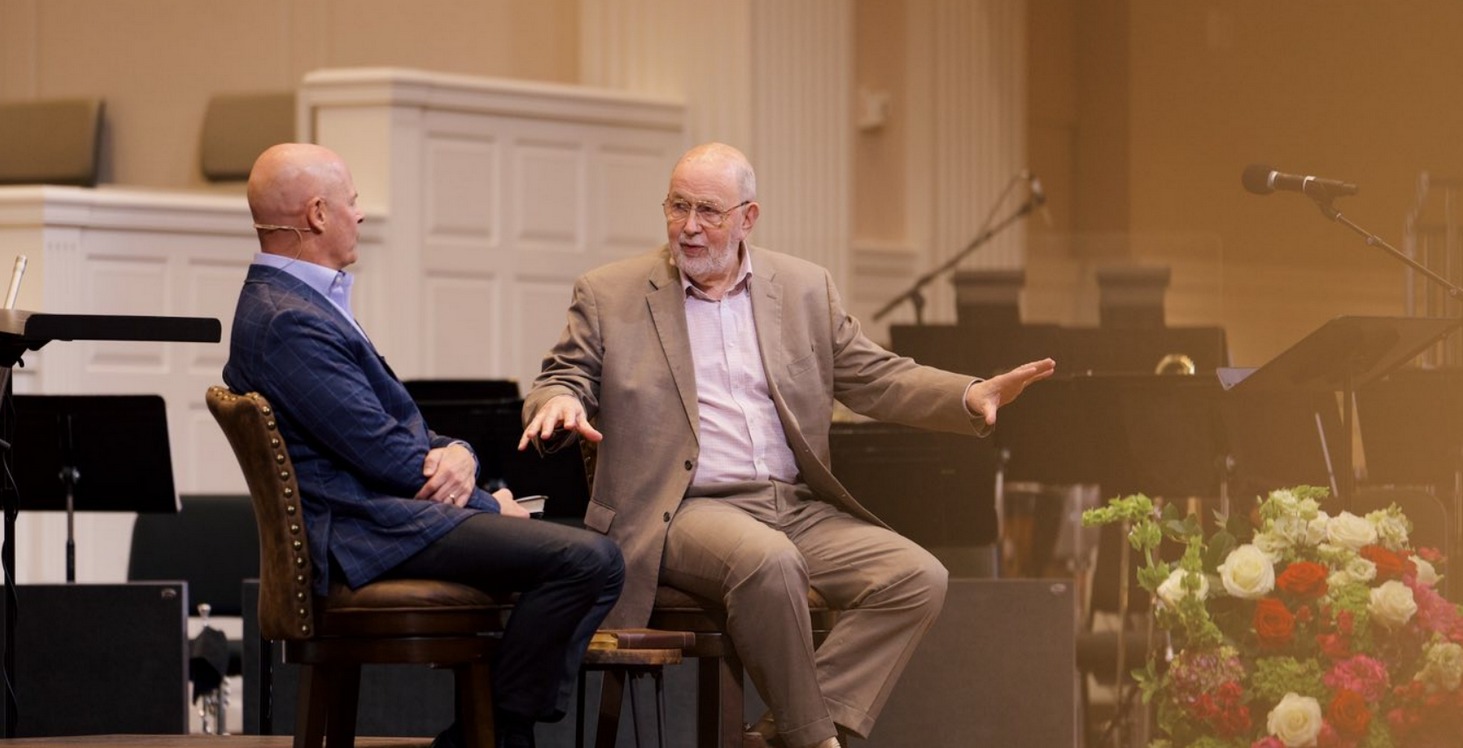
DALLAS — Not unlike 2,000 years ago when the Apostle Paul was divinely inspired to pen his letter to the church in Philippi, Tom “N.T.” Wright wants to remind everyone that the Gospel is still unchained.
The 76-year-old New Testament scholar, Pauline theologian and Anglican bishop kicked off a three-day conference on Paul’s letter to the Philippians at Park Cities Baptist Church, where 650 attendees from Texas and across the U.S. filled the historic church sanctuary.
Wright quickly zeroed in on the letter’s prison context, noting that while most scholars agree Paul was writing to the first-century assembly in Philippi, a Roman colony located in northern modern-day Greece, there is still some debate on whether the prison from which Paul wrote was located in Ephesus, modern-day Turkey, or Rome.
What’s indisputable, said Wright, is that Paul did not consider himself or the good news of Jesus Christ bound by his imprisonment.
“Paul is in prison when he’s writing [Philippians],” he said. “But the great thing about Paul writing from prison is he makes it clear that the Gospel is not locked up. He may be shut up, but the Gospel is not.”
Wright framed the entire epistle as a first-century showdown between two gospels set against the historical reign of Octavian, the first emperor of ancient Rome.
According to Wright, Paul’s entire focus in Philippians was to affirm the Lord Jesus over Caesar’s rule and reign. “In Jesus Himself, in other words, we see who the true God really is. The Creator, the God of Israel, who has shown His part of hand in keeping His promises to His people, raising Jesus from the dead and establishing Him as Lord,” he said.
Diving into the text, Wright pointed to Philippians 1:27 as the very heartbeat of Paul’s letter. “Our foundation is to be the genuine alternative society, sharing with the rest of the world that there is a different way to be human,” he said. “And it's an attractive way, even if it's dangerous, because not everyone approves of putting someone else, in this case Jesus, in the place of or ahead of Caesar himself in Rome.”
Wright moved on to Philippians 2:12–18, one of the more well-known passages of the epistle in which Paul encourages those in Philippi to “work out your own salvation with fear and trembling.” According to Wright, Paul is not contradicting “salvation by grace,” but rather, he is urging the Philippians to actively live out the radical, costly, cross-shaped salvation that God is already working in them.
“He doesn't mean ‘do moral good work to learn your salvation,’” said Wright. “... He noticed that God is indeed at work in them. And his job was to point them in the right direction and to encourage them, then, to think it out for themselves.”
Presenting Philippians 2:6–11 as the theological and poetic heartbeat of the entire New Testament, Wright contended that Paul did not quote an existing hymn but composed a breathtaking six-stanza masterpiece in perfect chiastic form whose very structure places the cross at the literal center of the cosmos.
He compared the passage to an image of a great "V" shape, with six stanzas of three lines each, with one extra line — “even death on a cross” — in the middle of the passage.
“So you’ve got this perfect three steps down, three steps up, with the cross in the very center,” he explained. “And the structure says, as I said, precisely more than the sum total of the words themselves. It’s a way of saying at the heart of everything — the heart of the cosmos, the heart of God — stands the cross.”
As he concluded the opening day of the conference, Wright contrasted the reality of the cross of Christ with the pagan religions of ancient Philippi, and traced the passage’s depiction of Jesus as the Suffering Servant of Isaiah 53 as a demonstration of God’s faithfulness to His promises and His people.
“The word ‘love’ doesn’t occur, but by placing the cross in the middle and showing how the exaltation flows from it, that’s clearly what it’s all about.”
News Source : https://www.christianpost.com/news/nt-wright-contrasts-christ-with-caesar-in-exploring-philippians.html
 Your post is being uploaded. Please don't close or refresh the page.
Your post is being uploaded. Please don't close or refresh the page.





